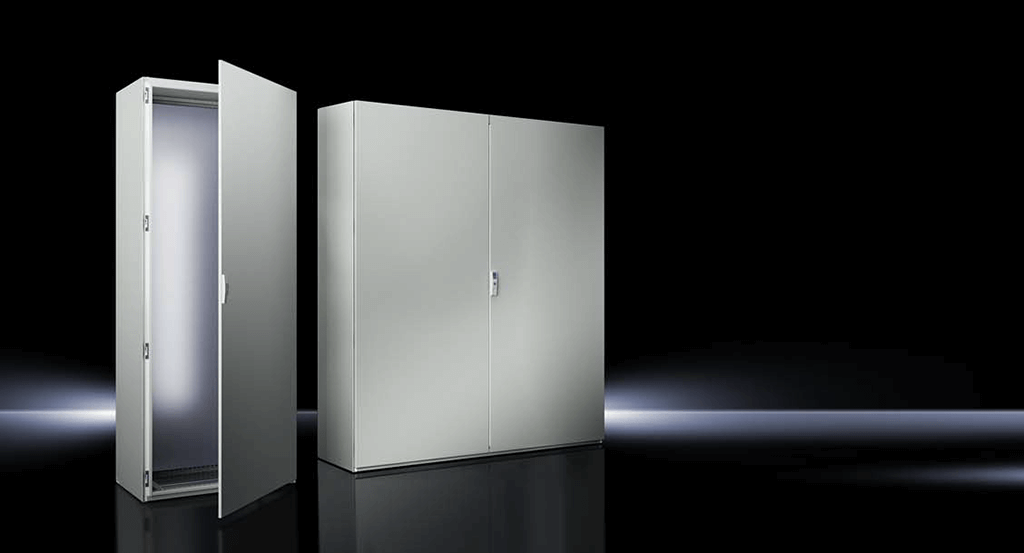
If the last couple years have taught global manufacturers anything, it’s that speed, flexibility, and reliability are perhaps the three most prized components of a productive and efficient industrial automation infrastructure. Whether it’s combating supply chain instability, labor shortages, lead times, or seamless integration, the right industrial enclosure solution is the heart of your automation system, and manufacturers need industrial cabinets that help them overcome these challenges.
While unibody enclosures may have long been the favored solution of choice for many manufacturers —modular enclosures provide manufacturers with the same rugged durability as unibody enclosures with the added bonus of flexibility via configuration, assembly, and installation.
Because it’s easy to fear what you don’t know, too many manufacturers have not realized the value modular enclosures offer simply because they don’t have the information or experience with how a modular approach to industrial enclosure design and engineering saves time, money, and resources. With this in mind, let’s look at a couple of reasons why there’s no need to be scared of modular enclosures and why manufacturers should make the move to modular.
Modular helps maximize floor space
Whether we’re talking about distribution centers in the material handling space, production floors in the automotive industry, or the hygienic zones of food and beverage production, space is at a premium and automation architects need enclosure solutions that shrink the footprint of their automation systems and maximize the square-footage at their disposal.
Whereas traditional unibody enclosures are rigid and lack the maneuverability to alterations in floor layout or space, modular enclosures — much like an adjustable hat — can be customized or tailored to fit specific applications in a variety of manufacturing environments. In turn, this flexibility helps automation architects easily adapt to challenging applications.
Modular enclosures unlock increased efficiency and promote flexibility through a variety of avenues. Innovative modular frame structures create both inner and outer mounting levels inside the cabinet, which allows for more electronics within the enclosure. Increased opportunities for baying on all sides of the enclosure allow for integration into spaces with size limitations, and a variety of connection configurations make for easy cabinet wiring regardless of the application.
Faster, more efficient configurations, simplified installations, and interchangeable panels also help create optimized efficiency by streamlining tedious, time-wasting manual processes that once required high degrees of human intervention and inflated operational costs.
Rittal’s TS 8 modular enclosure is ideal for applications where unique wiring needs and assembly challenges are often encountered. Plus, stainless and carbon steel construction options make the TS 8 well-suited for indoor or outdoor applications for increased versatility in deployment.
Same level of safety and protection
One common misconception surrounding modular enclosures is that the versatility in design, engineering, and in-field configuration sacrifices the high level of safety and protection unibody enclosures provide. While there are some differences in terms of NEMA or IP ratings when comparing modular versus unibody enclosures, the fact is modular enclosures can provide the same protection for sensitive electronics in a greater variety of industrial applications.
This is part of the reason why the Rittal TS 8 can help machine builders, panel builders, and systems integrators not only meet the challenges of harsh manufacturing environments but overcome them with even greater efficiency and productivity.
Rittal’s TS 8 is designed and engineered specifically with durability and toughness in mind for use in industry applications like the automotive industry where faster, more efficient configurations, simplified installations, and interchangeable panels help create optimized operational efficiency. The TS 8 provides IP 66 and NEMA 4 protection through:
- Carbon steel base and enclosure frame, plus zinc-plated carbon steel mounting panels for superior rigidity and support
- Steel folded 16X and close-welded frame for maximum protection and significantly reduced points of failure for optimized production uptime
- Four-point latches and seals to combat the intrusion of harmful or corrosive particles that could damage electronics or decrease the lifespan of the enclosure
- 30% more stability with 15% less frame weight without sacrificing protection or reliability
Digitalized design for simplified engineering
Industrial automation in today’s manufacturing landscape is built on end-to-end, 360-degree visibility, which includes everything from the sourcing of component parts to the integration of a finished panel and enclosure into existing production infrastructure. Such high levels of visibility and transparency are really only achievable through a complete digitalization of the design and engineering process, and this is where combining the modular construction of Rittal’s enclosures with digital design power of the EPLAN Platform helps automation architects design smarter and better.
As a scalable solution that meets the ever-evolving demands of global manufacturing, EPLAN provides manufacturers with data-driven 3D-layout capabilities to reduce production line errors, account for potential variables in production or customization, and help to seamlessly integrate workflows and communication of schematics.
Rittal’s modular enclosures paired with EPLAN’s cloud-based tools create streamlined workflows for installing electrical controls, wiring, and panel assembly. In addition, EPLAN helps manufacturers overcome:
- Increasing pricing pressures to be able to provide the right product at the right time within the right budget, especially as competition breeds a race to the bottom-line
- Skilled labor shortages that can result in increases in scrapped materials and revisions/alterations
- Delivery pressures due to the rapidly-changing and real-time demands manufacturers must respond to
- Inefficient workflows via antiquated data capture, storage, and communication systems
Learn more about the value of modular enclosures and how they can help you increase productivity, profitability, and growth.

